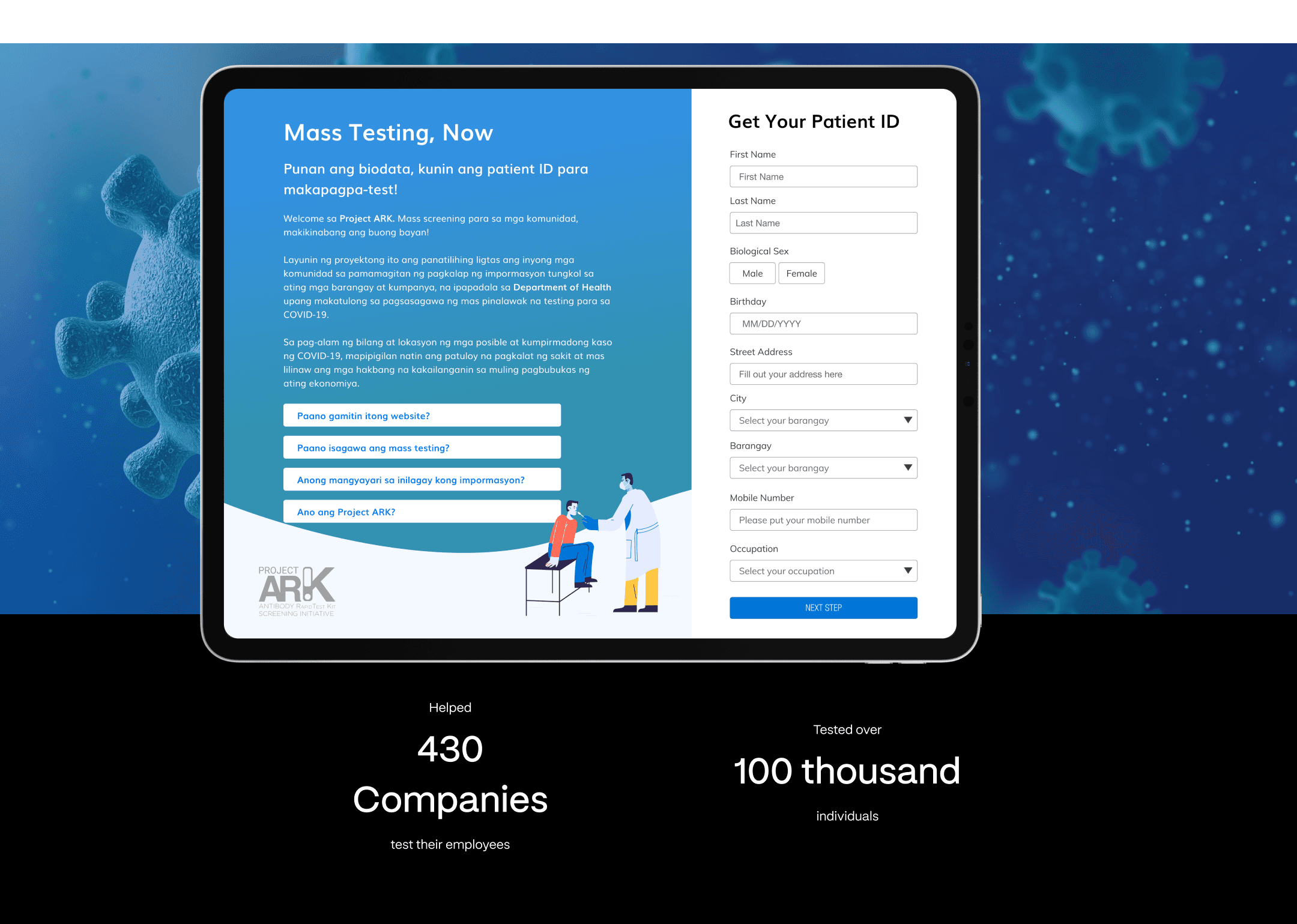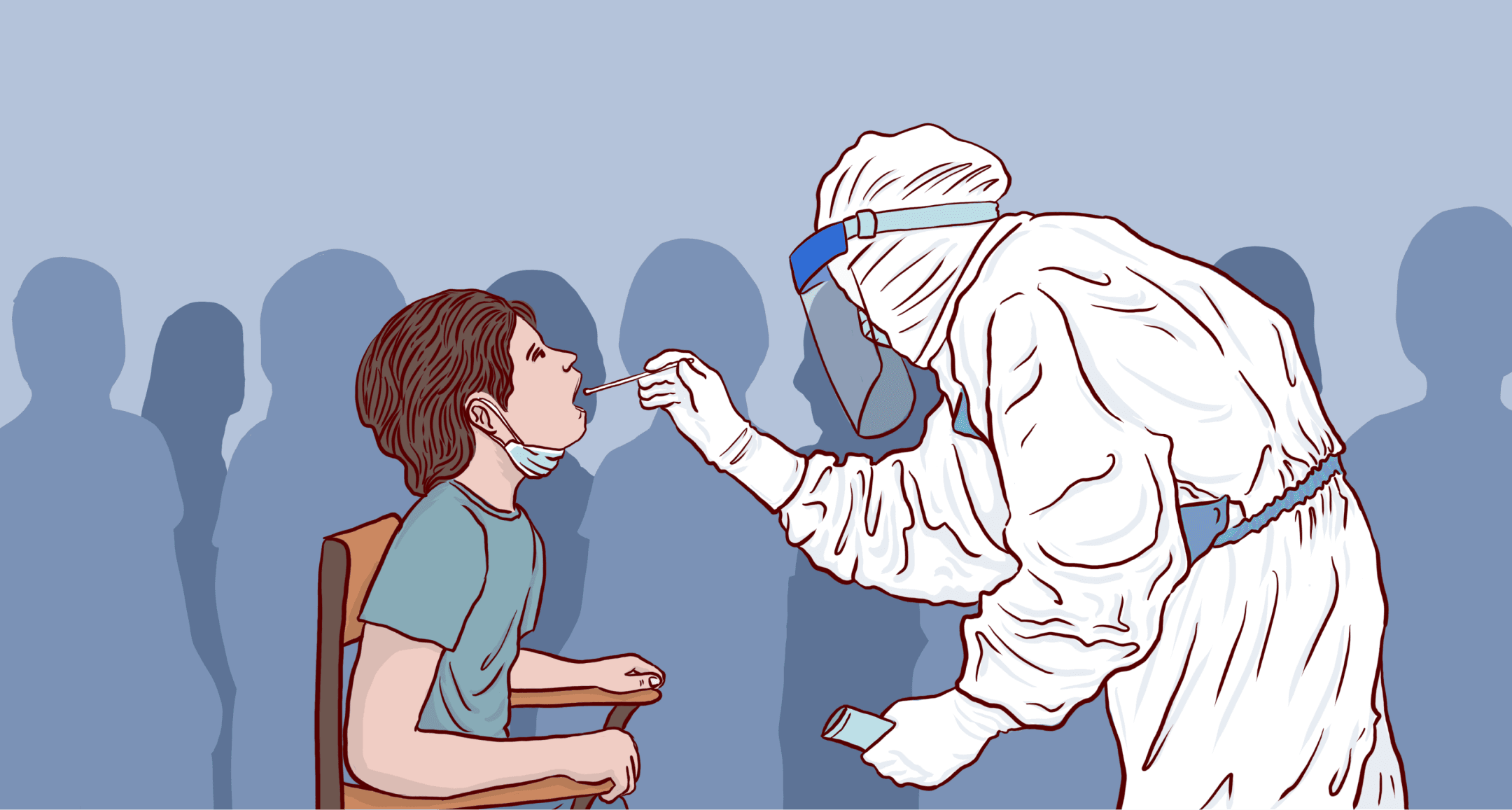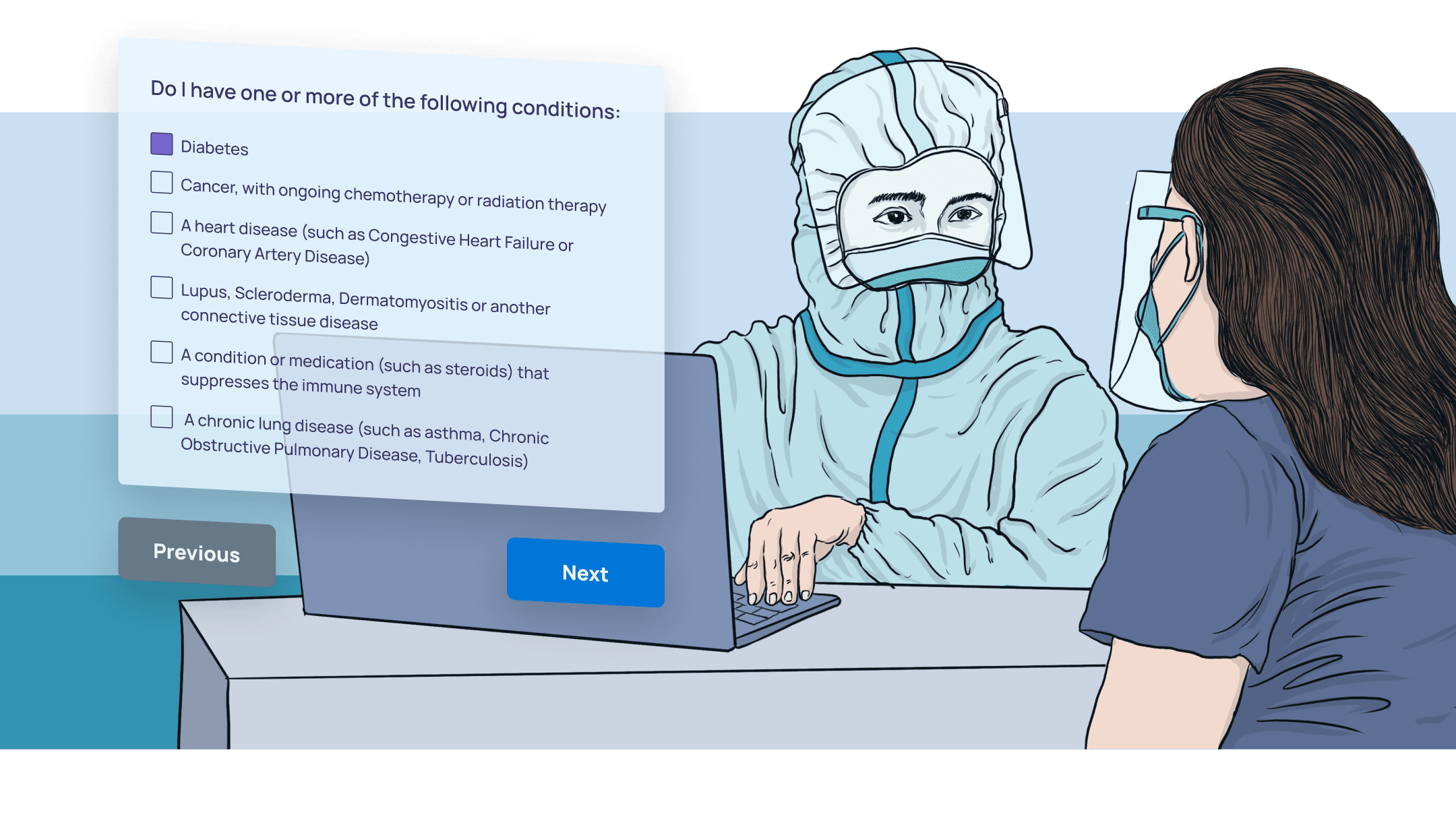Case Study
Bringing people back to work: Triumphing over the COVID-19 Pandemic through mass testing
Last Updated on October 7, 2025
by White Widget Team

Interested in big picture solutions for microscopic problems? Let’s talk.
Following the launch of FightCOVID app, White Widget embarked on another project aimed at easing the burden of the pandemic on the Filipino people. From day one, mass testing has been advocated to the government as a crucial step towards economic recovery and restoring normalcy to people's lives. White Widget donated its time and effort, devoting months to help build a mass testing platform, in partnership with private-sector-led non-profit org Go Negosyo, which is focused on helping grow small businesses in the Philippines.
Bring People Back to Work
Entire Platform
Product Design
UX Research
Custom Development
Mobile Responsive Web App
Web Admin Backoffice
Cybersecurity
DevOps
The COVID-19 lockdown in Luzon, the Philippines, began on March 17, 2020, and lasted until May 31, 2020. This period was marked by strict measures to contain the spread of the virus, including enhanced community quarantine (ECQ) in the national capital region and high-risk provinces, which caused significant economic losses. The lockdown measures led to a sharp drop in demand and revenue for micro, small, and medium-sized enterprises (MSMEs), which continued to confront challenges even after the lockdown ended. The impact of the lockdown on the Filipino people was profound. The strict measures disrupted daily life, affecting various sectors such as education, employment, and healthcare. The closure of schools and workplaces led to a shift towards remote learning and working, while the healthcare system faced challenges in managing the influx of COVID-19 cases. The lockdown also had a significant impact on the economy, with the Philippine economy entering a recession in 2020. The strict measures were necessary to contain the spread of the virus, but they also caused significant economic losses and disrupted daily life. The use of software for mass testing was crucial for identifying infected cases and clusters, helping to contain the spread of the virus and prevent further economic damage. White Widget’s team worked quickly to design and build software with the same frantic pace it had created FightCOVID, but this time, working with an NGO partner.
New Partnerships and Collaborations
With the team at Project ARK, we worked to streamline the process of conducting widespread testing, enabling organizations to take proactive measures in managing their employees' health during the COVID-19 pandemic. From April 2020 to July 2020, this mass testing project successfully engaged over 430 companies willing to administer free tests to their workforce, demonstrating a collective commitment to health and safety. Additionally, Project Ark secured close to 1.9 million rapid test kits and bolstered testing infrastructure by automating and activating 11 government hospitals, resulting in an impressive daily RT-PCR testing capacity of 12,000. Recognizing the pivotal role of targeted rapid testing in the journey towards economic recovery, Project Ark seized the opportunity to leverage White Widget's expertise to create an accessible testing platform. With the cost of rapid test kits lowered to P450, the initiative is poised to catalyze further participation from various brands, ultimately increasing the volume of tests conducted per day.

Patient Management and Data Handling
Patients using the responsive web app could input their personal information and receive a unique ID and QR code for identification during testing. They could also access their test results through the app. At the testing facility, personnel would scan the patient's QR code or enter their ID for verification, record symptoms and comorbidities during interviews, update the patient's status, and generate test reports for companies and local governments. Company managers could access reports of all tests conducted within their organization's facilities through the app. They also had the capability to create and manage testing facilities as needed.
Accessible and User-friendly
To make the app user-friendly, we paid careful attention to the details. Mobile numbers were displayed with dashes and area codes for easy reading. Big numbers like the testing kits used have commas to help users quickly understand them. Dates, whether it's a birthday or when the account was created, look consistent and clear. And if users made a mistake filling out a form or uploading a file, we made sure the error messages were friendly and helpful, so users would know exactly what to do next.

Utimately, hundreds of companies were able to conduct an estimated one million COVID-19 tests
About the Authors
White Widget Team is known for delivering holistic, award-winning software solutions across diverse sectors such as transport, healthcare, and media, emphasizing a comprehensive approach to digital innovation, since the company was founded in 2012.

News•
White Widget Wins Gold at Indigo Design Awards 2025 — Shortlisted for Digital Design of the Year
We’ve got some exciting news! Our website, White Widget (whitewidget.com), has won Gold in the Website Design category at the 8th Indigo Design Awards, and is shortlisted for Digital Design of the Year.

Article•
From Cost Sink to Growth Engine: Modernizing Fintech Systems
Modernizing legacy fintech systems is no longer optional—it's critical to stay secure, scalable, and competitive. Learn how future-proof strategies can replace outdated infrastructure and unlock innovation in digital financial services.



